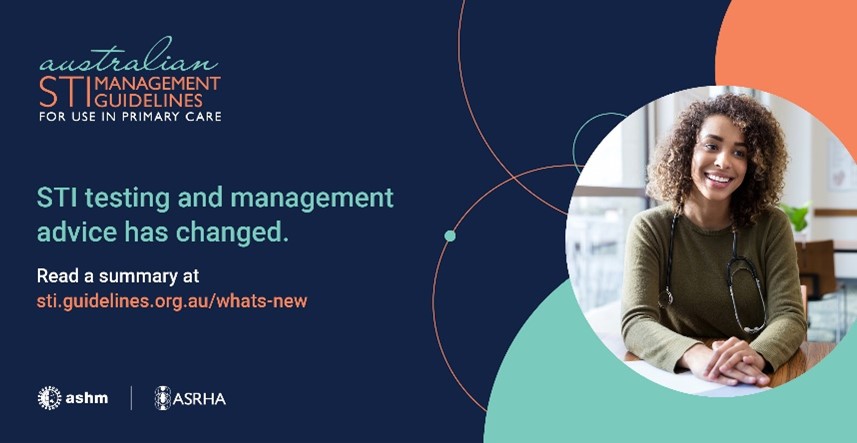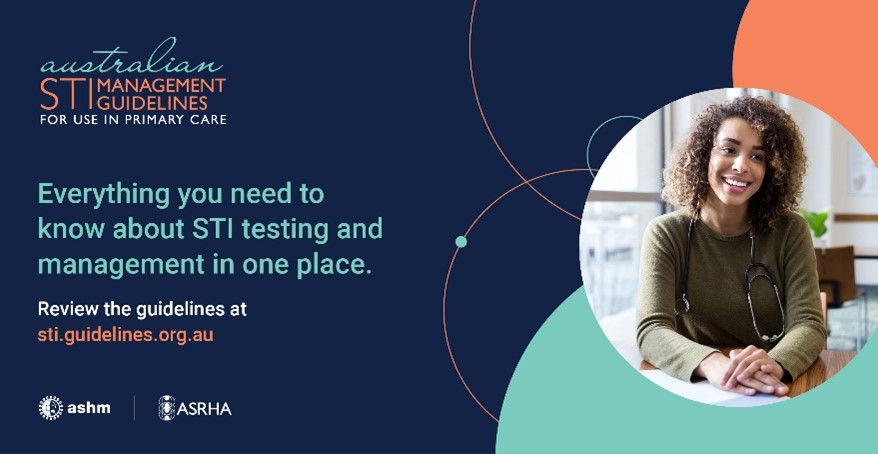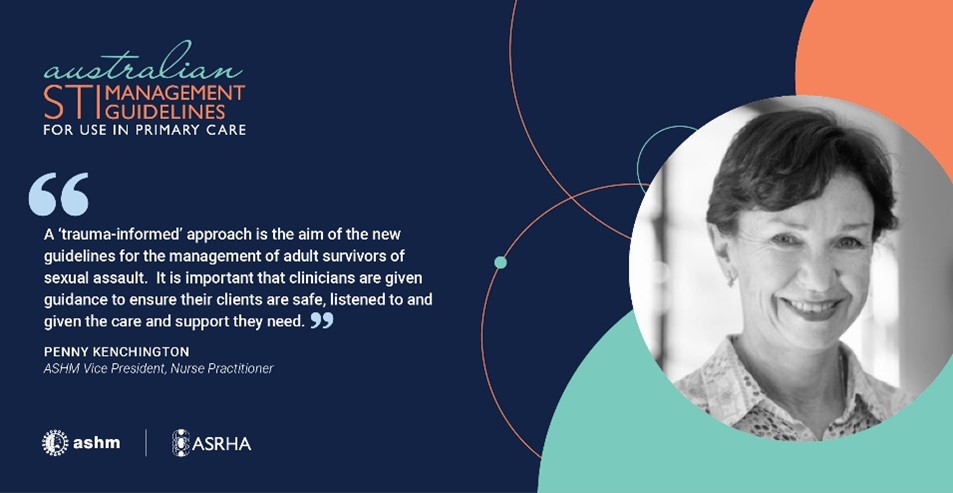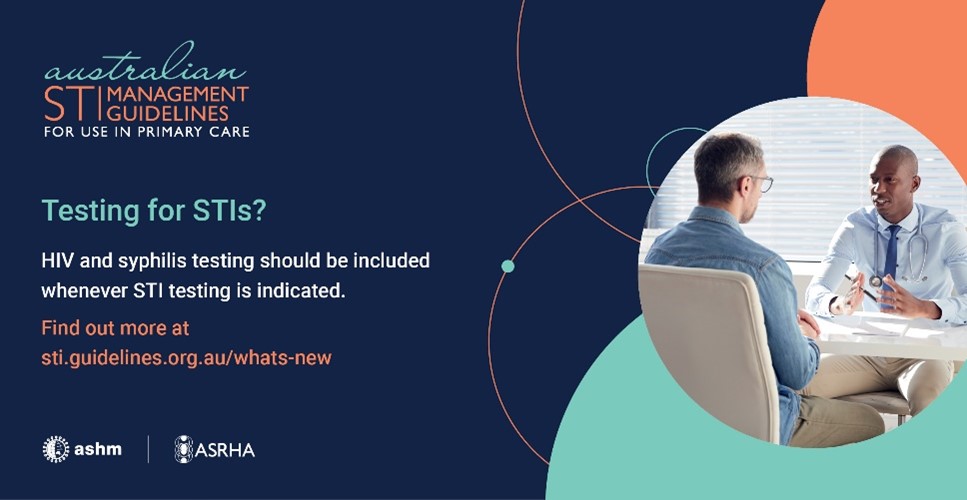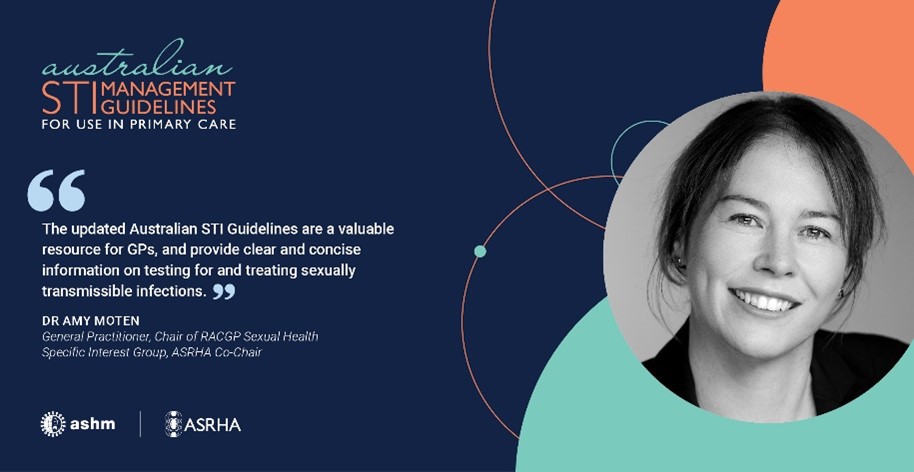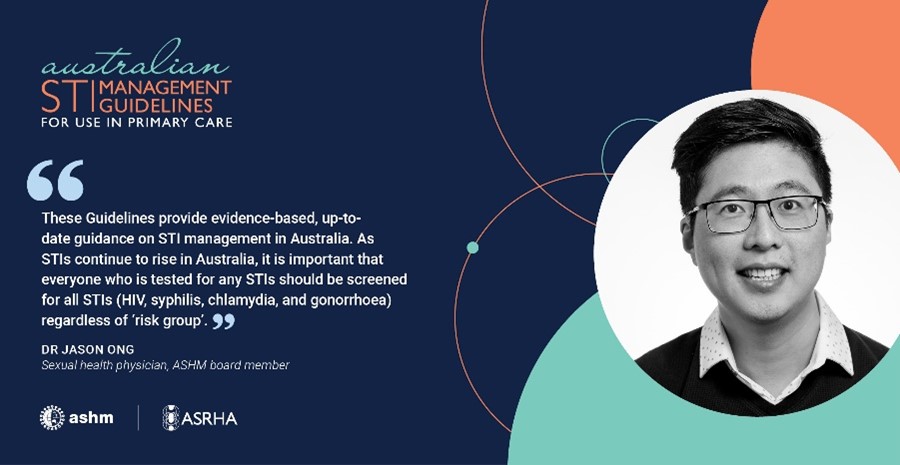Media kit
Share the STI Guidelines
The Australian STI Management Guidelines for use in Primary Care are an essential resource for primary healthcare professionals. The 2020-2022 review resulted in a number of major updates, which are vital for healthcare workers to be aware of and apply to their practice. This page includes a range of materials for you to share with your networks, across any channels. You can share materials through your website, email newsletters, social media and more.
Copy for your website
The Australian STI Management Guidelines for use in Primary Care are an online resource for primary care health professionals, providing concise information to support the prevention, testing, diagnosis, management, and treatment of sexually transmissible infections (STIs) for adults and adolescents.
A recent major review of the Guidelines has resulted in updated recommendations including that HIV and syphilis testing should be included whenever STI testing is indicated. Make sure you are up to date with the latest advice by visiting https://sti.guidelines.org.au/whats-new/
Example news article
The Australian STI Management Guidelines for use in Primary Care are an online resource for primary care health professionals, providing concise information to support the prevention, testing, diagnosis, management, and treatment of sexually transmissible infections (STIs) for adults and adolescents.
A recent major review of the Guidelines has resulted in updated recommendations, including that HIV and syphilis testing should be included whenever STI testing is indicated. This change aims to combat the concerning rise in syphilis diagnoses and pursue the goal of eliminating HIV transmission in Australia, while also removing the stigma associated with demographic-based testing.
“If fully implemented, this may be a step toward normalising HIV testing, allowing women and men (who are not gay and bisexual men who test frequently) to enjoy the benefits of early diagnosis and treatment,” says Dr Nick Medland, Sexual Health Physician and ASHM President.
Another major change was to the adult sexual assault guideline, which is now presented in a ‘time from assault’ framework. Penny Kenchington, Nurse Practitioner and ASHM Vice President, notes that the new guideline takes a trauma informed approach. “It is important that clinicians are given guidance to ensure their clients are safe, listened to and given the care and support they need”.
The update to the Guidelines was an intensively collaborative process, bringing together a multidisciplinary group of clinical and non-clinical experts representing organisations and jurisdictions from around the country. The hard work has paid off - the Guidelines are now endorsed by the Australian Government’s Blood Borne Viruses and Sexually Transmitted Infections Standing Committee (BBVSS), and have been officially recognised as an Accepted Clinical Resource by The Royal Australian College of General Practitioners.
“The STI Management Guidelines are a critically important resource for the Australian primary care workforce,” says Alexis Apostolellis, ASHM CEO. “ASHM is enormously grateful all of the people and organisations who gave their time and expertise to ensure the Guidelines are as up-to-date, inclusive and useful as possible.”
Review the key changes to the Australian STI Management Guidelines for use in Primary Care at https://sti.guidelines.org.au/whats-new/
Social media posts
Suggested caption: The guidelines for testing and managing STIs in primary care have changed. Stay up to date on the latest, and learn more about what’s changed at https://sti.guidelines.org.au/whats-new/



